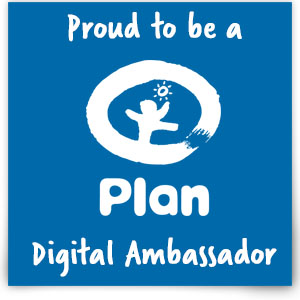Why You Should Learn… Arabic
 Following on from my post last week about learning Hindi, Bengali or Punjabi, here’s the fifth post in my series on the top 10 most spoken languages in the world.
Following on from my post last week about learning Hindi, Bengali or Punjabi, here’s the fifth post in my series on the top 10 most spoken languages in the world.
No. 5: Arabic
232 million native speakers, 452 million total speakers. Official language of 27 countries, spread over Northern Africa & the Middle East, and 1 of the 6 official languages of the United Nations.
Why Arabic?
Oil is where the money is, and the oil is in the Middle East. Plain and simple. The Middle East is quickly finding its place on the world stage, not only in business but in tourism as well. More and more people are migrating there in droves to escape unemployment in battered Europe and while it’s supposed to be a very difficult language to learn, those who persist are handsomely rewarded. Zero income tax in Qatar you say? For all of the above, multinational companies and governmental departments are desperate to hire Arabic-speakers, and you’ll possess a very valuable skill.
Included in the list of Arabic-speaking countries is stunning Morocco, history-rich Egypt, Qatar, Syria, the luxurious United Arab Emirates, Tunisia, Lebanon, Jordan, Israel… More and more universities are offering degrees in Arabic and Islamic Studies, which will normally include a Year Abroad spent in one of these countries. I have friends who lived in Morocco, Egypt and Syria (before all the political turmoil) and studied in a language school. As far as Year Abroad destinations go, from what I’ve heard, the culture shock is somewhat bigger in Arabic-speaking countries, but that also means that it’s more of an adventure and a radically new experience. I’m told the dialects of Arabic across the entire region do vary quite dramatically, but a grounding in Classical Arabic will allow you to read the Qur’an.
I’d like to live in the Middle East for around 6 months at some point in my life. Simply to experience life there. The expat community in some countries can sometimes be completely removed from the actual day-to-day life of the locals, which seems like a great shame and a barrier that needs to be overcome. In the meantime, I’d like to visit a few more Arabic-speaking countries, starting with Morocco and Dubai in the Unitad Arab Emirates.
Top 5 Survival Phrases:
- مرحبا ‘Marhaban’ – Hello
- شكرا ‘Shukran’ – Thank you
- كيف حالك؟ ‘Kaifa haluka?’ – How are you?
- لم افهم ‘Lam af’ham’ – I don’t understand.
- الى اللقاء ‘Ila al’likaa” – Goodbye
As it’s such a difficult language, you’re unlikely to really master the language through part-time study. Dedicate yourself to an intensive in-country course for a few months or look into getting a degree in Arabic. Those in the UK can find out which universities offer Arabic degrees (as well as how much they charge and what grades are needed) at the website Whatuni.com.
Next week I’ll be profiling the No.7 most spoken language: Portuguese.
[You can still vote below for the languages you’d most like to learn]










When I visit a place I try to learn some easier phrases, but sometimes I’d love to learn the language. I see Arabic as pretty difficult, maybe because of the writing, but you have a point there, it would be good to know since many “Oil”-countries speak it and there is also so much interesting and old cultural sites in those places. 🙂
LikeLike
I see it as being very hard for me personally because I’m more used to the Romance languages, which all have similarities. I simply wouldn’t know where to start with Arabic! I’m very impressed by anyone who can speak it!
LikeLike
I´d really love to be fluent in Arabic some day. Inshalla!
LikeLike
Hi Virginia, When we lived in Khartoum, Sudan we studied Arabic – a beautiful and challenging language. Our tutor taught us the pleasantries and our new friends taught us the “not-so-niceties!” It was the perfect combination! All the best, Terri
LikeLike
Wow, so how is your Arabic now? And what is Sudan like? That’s always the way – the teachers teach you what you’re supposed to say, and the locals teach you what people actually say! That’s why it’s so important to go and live in another country, otherwise you only have the textbook version of the language!
LikeLike
La Shukran is important as well. It means no thank you. It was very helpful when I was in Egypt. We also learned yalla yalla (let’s go), habibi (good friend is the closest English translation), and hamem (bathroom).
LikeLike
Aaah that’s a very good one, I’d forgotten about that. I haven’t been to Egypt since 2007 unfortunately…
LikeLike
I’ve visited a few Arabic-speaking countries (Bahrain, Egypt, Morocco, Tunisia), and when I was there, I tried to pick up a few words in each one. Having also studied a Romance Language (French) and German, I had a difficult time with Arabic, but I’d love to master a language with a different script.
LikeLike
Unique post ,and beautiful pictures. Arabic is a majestic language .l Teach Arabic ,I am retired journalist.Beside Arabic ,l speak,German ,English , Turkish and Armenian.Best wishes.jalal
LikeLike
Wow that’s a lot of languages…Well done.
LikeLike
Arabic language is very popular among two-hundred sixty million people. Arabic plays an important role in the Islamic faith because Arabic is the language of the Holy Quran. Not only Arabic there are so many other languages available to learn. Check this site out
LikeLike
Hi Virginia,
I have a general language learning blog, and I have made an Arabic Alphabet chart with arrows (to learn how to write).
Now I’m giving it away to other people with blogs about the Arabic language. If you’d like to have it, you can grab it here. If you need a different size, just email me at the address I provided.
http://www.speakoutlanguages.com/arabic-alphabet-chart-code/
Have a good day!
Ryan
SpeakOut! Languages
LikeLike